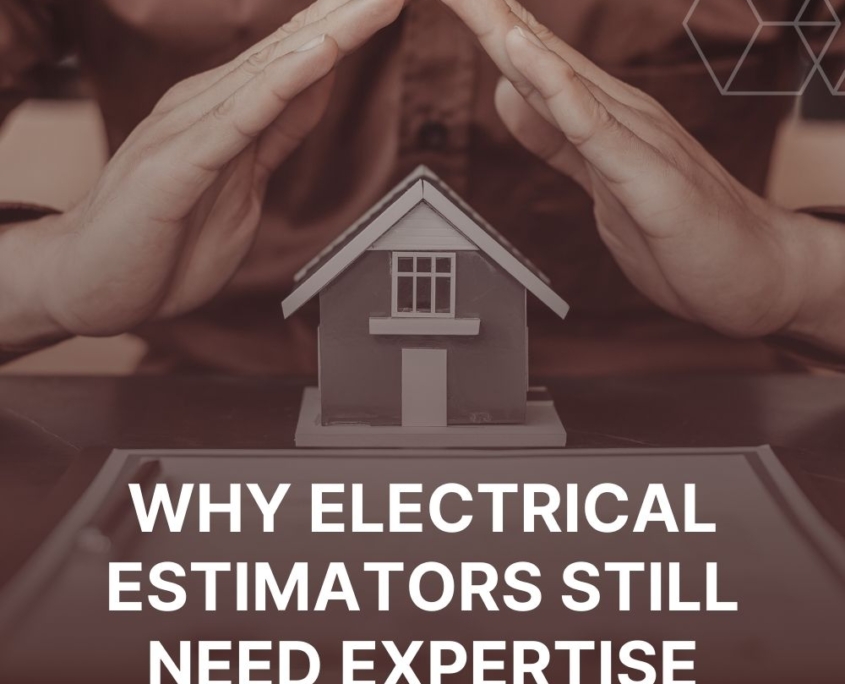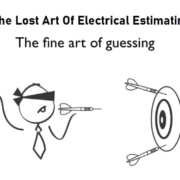
What are the shortcomings of electrical estimating software, and why is experience still needed? It’s a fair question.
The use of electrical estimating software has totally transformed the way a contractor handles a bid and project management. It has simplified life by accelerating the process of calculation, enhancing accuracy, and facilitating detailed reporting. However, this software is not a magic wand as powerful as it is. It is not able to do all the things, and it definitely does not eliminate the necessity of experienced estimators.
The fact is that these tools are very good at performing repetitive tasks and crunching numbers, whereas they are not so good at such aspects as judgment, creativity, and flexibility. We discuss below in more detail what electrical estimating software can and cannot accomplish- and why estimator expertise is still important.
What Electrical Estimating Software is Good at?
To begin with, we should give credit where it is due. The electric estimating software is a powerful tool. Here’s where it really shines:
Accurate Calculations
No more hours of manual calculation of project costs or material quantities. These calculations are automated by software and save time and human error.
Detailed Reports
Require a professional bid proposal or materials breakdown? The vast majority of software is capable of producing them in a few minutes, with finished client-ready documents.
Speed and Efficiency
Time, money, and software estimating software will enable you to submit bids at a faster rate. This will allow the contractors to seek more opportunities without compromising accuracy.
Where does Electrical Estimating Software fail?
The most excellent software is limited. This is where technology will not suffice:
It is not able to comprehend Project Unique requirements.
Every project is different. Estimates can be highly influenced by site conditions, local regulations, and the requirements of the client. For example:
Do you trench underground wiring? The terrain conditions can severely influence the cost of labor and equipment.
Does the project have to meet local codes or utility regulations? These subtleties will not be detected automatically by software.
It Lacks Customization and Flexibility.
The majority of estimating platforms are based on templates and logic. That is fine–until you have to work on a complex or unconventional project. Unique builds can be quite creative, and software cannot recreate them.
It Can Not Be A Substitute For Human Judgment.
Even the most intelligent software is logical- it does not foresee danger. Skilled electrical estimators are able to spot the problems in the initial stages, see the opportunities to save money, and consider various implementation approaches before the problems occur.
It does not deal with Communication with Clients.
Although software can produce professional reports, it cannot explain estimates, answer client concerns or negotiate scope changes. Developing trust and communicating expenses involves interpersonal skills that can only be provided by humans.
It Is Not Going To Adapt To Change Easily.
Construction projects are hardly ever run smoothly. The lack of materials, design, or time constraints requires fast decision-making. Calculations can be recalculated with software, but experience provides flexibility and strategy.
Why Are Experienced Estimators Invaluable?
Now that we have discussed software limitations, why is expertise still important?
Software Logic vs. Cognitive Skills.
Linear estimation of software processes data. Skilled estimators do not think in parts. For example:
You can expect weather delays and re-arrange schedules and budgets.
You are able to assess material options on the basis of supply trends or price fluctuations.
Creativity and Problem-Solving.
Software doesn’t brainstorm. Experienced estimators discover new methods of achieving budgets, labor optimization, or reorganizing scope without affecting the quality.
Industry Knowledge
Hands-on experience over the years enables estimators to know the red flags, e.g., zoning problems or bad drawings that the software will never detect.
The Economic aspect of electrical estimating Software.
Financial awareness is also needed to use estimating software:
Cost vs. Value
Good estimating software is a cost. Services such as Best Bid are highly valued with options and features such as lifetime updates, no recurring charges, and in-built takeoff tools, and are particularly appealing to small to mid-sized contractors.
When Budgets Go Off Track
The use of software alone is risky:
The fluctuations in the price of materials might not be reflected.
Minor yet significant expenses, like permits or site logistics, can be neglected.
A trained estimator fills these gaps.
The Problems of Software Implementation.
The most useful tools may pose difficulties in the implementation:
Compatibility Issues
Software that is not compatible with scheduling or project management software can slow down workflows.
Data Migration Problems
The data migration process between old systems and new ones is to be closely monitored to prevent mistakes or information loss.
Finding the Perfect Balance
Electrical estimating is best done when the software and expertise are complementary.
Collaboration Is Key
Speed, calculations, and reporting with software; and use experience to revise, refine and confirm estimates.
Stay Ahead of the Curve
The development of AI and automation is not going to stop, yet they will never be without human control. Contractors who integrate technology and skills will remain competitive.
The Best Tool for the Job
We know the needs of electrical contractors in the real world at Best Bid. Our estimating software is created to help us be more productive and to assist rather than to substitute professional judgment.
Want to see the difference? Give us a call at 800-941-7028 to get a quick screen-share demo. No stress, just straightforward answers and the assurance that you are employing the right tools to do the job.









